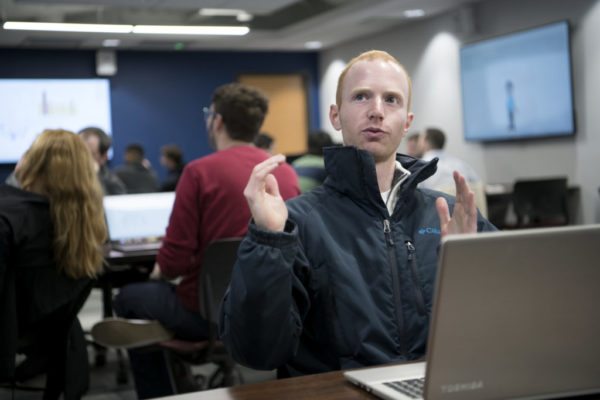These days, there isn’t just one way to get an education, says Virginia Tech’s Pamplin College of Business Dean Robert Sumichrast.
Popular program options for working professionals include MOOCs, coding bootcamps, technical certifications and master’s degrees. The question is which one to choose.
MOOCs — massive, open, online courses — let students audit courses online, at no charge, through well-known universities. Students may also participate in paid versions of the course, which add graded assignments, extra support and a certificate for successful completion.
Coding bootcamps vary widely in their duration, format and cost, but all have a similar goal: to help students ramp up quickly on coding skills, especially web and mobile development.
Technical certifications are credentials that show people have passed a test and, in some cases, worked in a given job for a set period of time. These can be inexpensive to attain, if the student is willing to do self-study. However, they’re of limited duration; when the technology is updated, the certification needs to be updated, too.
Then there’s the master’s degree:
- It’s only available through institutions that have gone through an accrediting process to prove the quality of their instructors and courses.
- In the leading schools, faculty have practical experience in the subject and bring cutting-edge information to their students.
- The program generally includes a community of alumni with deep connections and support.
The online Master of Information Technology, offered by Virginia Tech, adds an additional benefit: It has been jointly developed by faculty from both business and engineering, which means it can strike that sweet spot of “technical and soft skills” that employers truly value, notes Sumichrast. The combination, he says, “makes for a really well-rounded student coming out of the program.”
So how do you choose a program? Sumichrast recommends looking at the context in which you’re operating. “If you’ve already got a degree in the field that you’re trying to update, then maybe a single course, such as a MOOC, could give you a narrow update on what you already know.”
“These are personal decisions,” Sumichrast advises. “Find the education that best fits you. For many students that means one that puts the facts that you learn in context and that approaches problems from different directions so that you can have a more coherent whole when you finish.”
For more information about Virginia Tech’s 100% online Master of Information Technology Program, visit www.vtmit.vt.edu or sign up for an upcoming information session.


